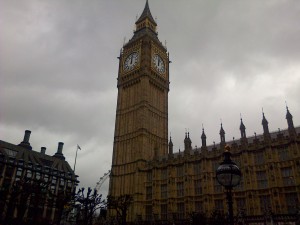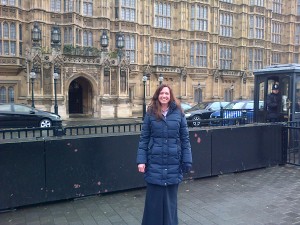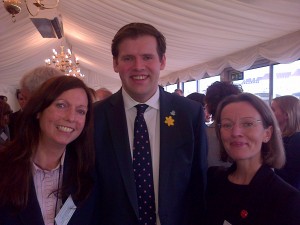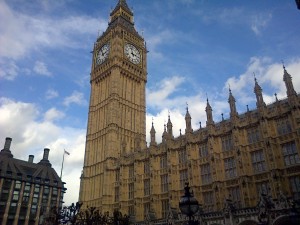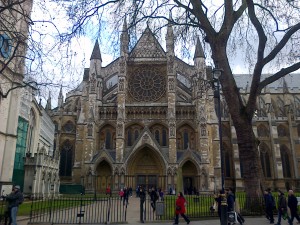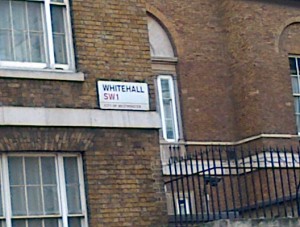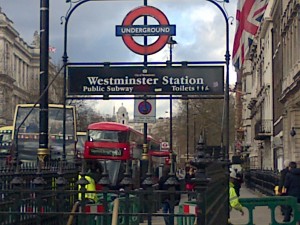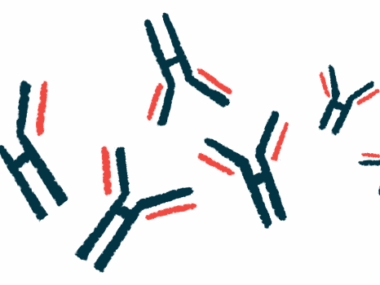Rare Disease UK Reception at the House of Commons 2.3.16
Written by |
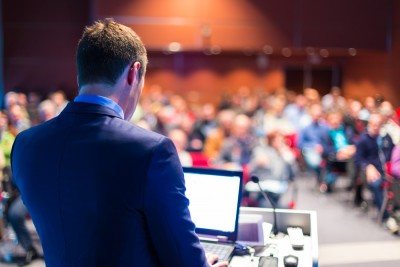
On Wednesday 2nd March 2016, I had the honour of attending the Rare Disease UK reception for rare diseases at the House of Commons hosted by Liz Kendall MP. This is the fourth time that Liz has hosted the annual reception for recognising rare disease day, which is scheduled as the last day in February, with the hope that the World Health Organisation will recognise it as the official rare disease day. I blogged about this in my last post, as well as ‘why Rare Disease Day is so important to patients’, here is the link:
https://sclerodermanews.com/2016/02/28/rare-disease-day-2016/
I arrived at the House of Commons to the thunderous peal of Big Ben alerting London to the fact that, it was midday. This was quite a poignant moment for me, as anyone who knows me, will know that at this time on a ‘normal’ Wednesday, I am glued in front of my television for the weekly Prime Minister’s Questions, if Parliament is sitting. And so, it was a huge honour for me, to be away from my sofa and dressing gown, in person, at the House of Commons at this time and day. Weeks of preparation had gone into preparing my body for this Herculean physical exertion of a big day out! And, incidentally, it was 12 years and 1 day since I had qualified as a practising barrister on 1st March 2004!
Here is a photo, which the taxi driver kindly snapped, quickly, of my eskimo disguise, arrival – so quick that I had not had chance to put my glove back on, having shown him how to operate the camera!
The reception started promptly at 12.30pm whereby Alastair Kent OBE, Genetic Alliance UK; George Freeman MP, Minister for Life Sciences; Dr Gina Radford, Deputy Chief Medical Officer; Elizabeth Kendall MP; Fiona Marley, NHS England; Ben Howlett MP, all gave insightful, encouraging talks to the 150 attendees, 87 different organisations/ diseases who were represented.
Insightful, by way of the Government’s commitment, along with cross party support, to the implementation of the UK Strategy for Rare Disease and its 51 commitments, which has been set out to be achieved by 2020.
The strategy can be broken down into the following 5 subheadings:
- Empowering those affected by rare diseases
- Identifying and preventing rare diseases
- Diagnosis and early intervention
- Coordination of care
- The role of research
https://www.gov.uk/government/uploads/system/uploads/attachment_data/file/260562/UK_Strategy_for_Rare_Diseases.pdf
‘Effective implementation of the Strategy will ensure people living with a rare disease have access to the best evidence-based care and treatment that health and social care services, working with charities, researchers and industry can provide’ ~ Alastair Kent, OBE, Chair of Raredisease UK.
The theme of this year’s rare disease day was ‘patient voice’. The immense value of patient voices for rare diseases was recognised by all of the speakers, with the recognition that each patient is an expert in their own diagnosis, and who, have often had to educate the medical professionals they encounter.
In relation to my diagnosis, I am blessed to be a patient of one of the world leaders and trailblazers for Systemic Sclerosis and raynauds (Ssc), Professor Denton. This is a huge comfort to me, given that there is currently no cure, and my life has been turned upside down, due to my diagnosis and the debilitating symptoms it brings.
Liz Kendall stressed the importance for patients to hold the politicians to account with the Government’s commitment to the strategy, and given that my diagnosis no longer allows me to continue as a practising barrister, my dream job, which I studied and worked hard for- I will most certainly be keeping a keen eye on the progress of the strategy!
Fiona Marley from NHS England stressed the importance of an early diagnosis to prevent a potentially damaging and life threatening prognosis and endorsed the UK Strategy for Rare Diseases commitment to ‘work to achieve reduced times for diagnosis of rare diseases. As, delayed diagnosis can have a significant impact on a patient’s health, treatment options and even life expectancy’.
A recent study, The Rare Reality, undertaken by Raredisease UK, found that, ‘Following the onset of symptoms nearly half of all respondents waited over one year to receive a diagnosis and 1 in 4 patients had to wait over five years for a diagnosis. Rare disease patients wait an average of four years for their diagnosis’.
Fiona also went on to mention the advantage of specialised expert centres, with the potential to be applicable as European Reference Networks, as led by Eurordis, where collaborative care would be of huge benefit to rare disease patients.
Again, on a personal level, I feel blessed to be under the care of the specialist centre for Ssc at The Royal Free hospital in London, with Prof Denton as Head. However, when I first became his patient, he had just qualified as a Consultant in Dame Prof Blacks’ team, 1998! This continuity of expert care, I believe, is of HUGE importance in the treatment of rare disease patients.
The final speaker of the day was Ben Howlett MP. Ben has recently been elected as the Chair of the APPG (All Party Parliamentary Group) on rare, genetic and undiagnosed conditions. Ben expressed his commitment to the rare disease landscape and affirmed his dedication to improve the current situation, keeping the patient voice at the forefront of his work, and honouring the UK Strategy commitment. Here is a photo of myself with Ben and Dr Larissa Kerecuk, who is the Rare Disease Lead at Birmingham Children’s Hospital and is developing the Rare Disease Centre there. https://www.bch.org.uk . A blessing to her patients.
During the reception, a certificate of appreciation for ‘Commitment to the rare disease community’ was presented to Lord Walton, who at 93 years of age was an inspiration to us all, with his thank you speech!
If you are a resident of the UK you can invite (email, tweet, facebook message, write) to your local MP inviting them to join the APPG for rare, genetic and undiagnosed conditions and I urge every rare disease patient to do this, as together the patient voice becomes much louder!
The reception was concluded by watching a very moving film clip of a very brave young man called Drew, explaining about living with CVID (Common Variable Immune Deficiency).
https://www.youtube.com/watch?v=EfjJFpsI2Ro
This made me think about my reality of having lived with Ssc and raynauds since 1997, aged 24, and although, rare diseases are rare, the commonality which can be seen with all of the 6000-8000 listed rare diseases is plain to see, namely:
- the need for an early diagnosis
- where no cure is available, evidence based treatment options ‘to plug in the gaps’, as Drew so aptly describes.
- find out what works and stick with it so that you can try and lead a life similar to a healthy person.
Currently there is no cure for Ssc or raynauds, just treatments which suppress the symptoms and of course, added unpleasant side effects. I stopped taking my 2g daily dose of immunosuppressants (mmf) of the previous five years, on the same day I appeared in court as a practising barrister (1.3.2004) – 4months later I was back on my back and forced to make lifestyle choices to address the symptoms as opposed to returning to chemotherapy. I changed my diet in 2012 and have seen a remarkable improvement in my symptoms by including daily fresh fruit and vegetables juices.
- raising awareness is key to improving the potential for better treatments and ultimately a cure.
- And, as Drew describes, the access to a clinical expert team is paramount for survival and optimum patient safety and care.
I am eternally grateful for the medical expertise of Dame Professor Black and the super human-being Professor Denton, whose commitment to the diagnosis and to his patients is my elixir, to keep on board ‘the rare disease patient-voice fun bus’, in the hope of being a patient voice for improvements across the full rare disease spectrum.
It is with huge thanks to Rare Disease UK for providing the space to make this event happen, which is most definitely one of the highlights of my rare disease patient journey of the last 19 years.
And of course, HUGE thanks and appreciation, for the tireless work and dedication Rare Disease UK shows to the rare disease patient community, providing the next best thing to a cure = HOPE.
Here are a few more sight seeing snaps from my BIG day out, which my tin man body is still in protest about (day 4 …) ~ all in the hope for a cure, better treatments and care, expert patient voice 🙂
BIG BEN 3pm
WESTMINSTER ABBEY:
WHITEHALL (I could not resist….)
WESTMINSTER TUBE STATION (too many steps for me, so I had to use a taxi…)



